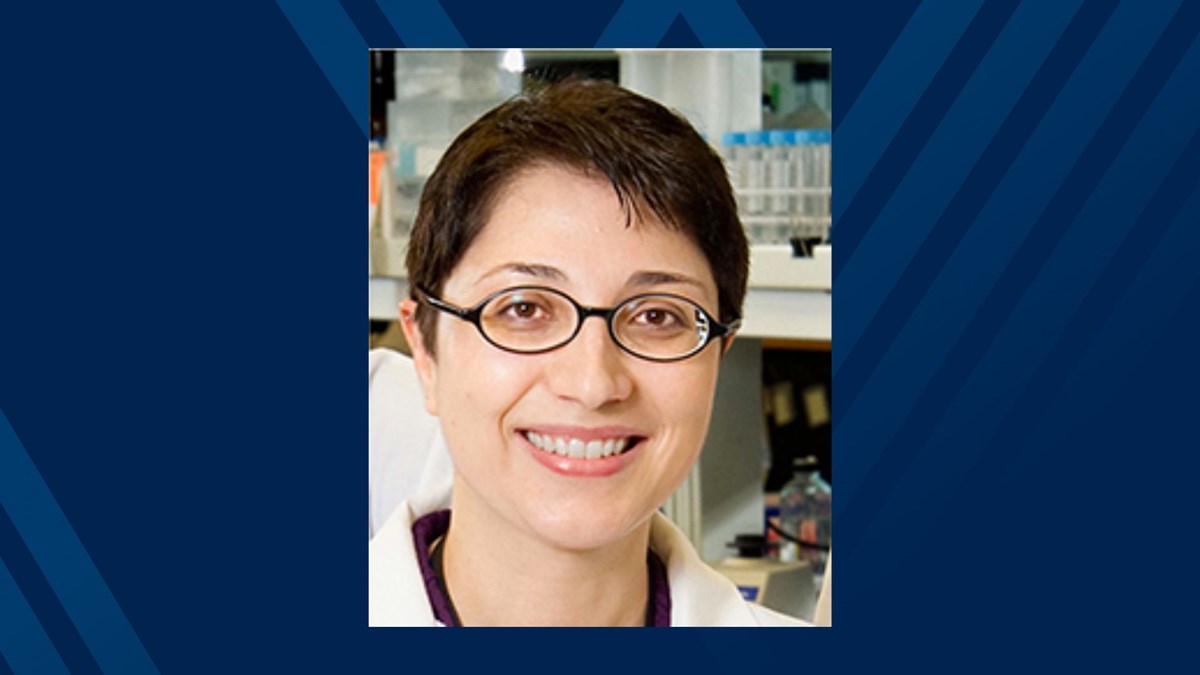Roberta Leonardi, Ph.D.

“I chose to be a scientist because I love the satisfaction and pride you get when you make a discovery and learn something new. I also chose a career in academia because I enjoy mentoring students in the lab and witnessing their evolution into independent scientists.”
Why did you choose this career? Was there a specific “a-ha” kind of moment?
I chose to be a scientist because I love the satisfaction and pride you get when you make a discovery and learn something new. I also chose a career in academia because I enjoy mentoring students in the lab and witnessing their evolution into independent scientists.
What in your educational experience and training stood out to you, and what advice would you share with students who are in that position now?
When I was a Ph.D. student, my dissertation project was about expressing, purifying and reconstituting the enzymatic activity of a protein that was sensitive to oxygen and very hard to keep in solution. I don’t know how many times I saw it precipitate in front of my eyes as it was eluting from the column during the purification. It was very frustrating. My mentor was not sure about what to do and suggested that I go to the library (yes, a physical library!) to see what I could find. After spending a week consulting old, dusty books, I found four or five different compounds, such as glycerol, that you could add to the purification buffers to increase the stability of a protein, and it worked.
From that experience, I learned that I was capable of solving a major problem by myself. My advice to any student would be to embrace challenges and be confident that, no matter how difficult a problem seems, you are perfectly capable of finding a way to solve it or get around it.
Why did you choose to come to work for WVU? What is special about Morgantown?
I loved the collegial environment. I also really enjoy the gorgeous fall colors.
Why did you choose your specialty? Does it have any special significance for West Virginia?
I love how metabolic processes are interconnected, which is also what makes metabolism so complex. Coenzyme A (CoA) and its derivatives sit at the crossroads of so many pathways, that it made perfect sense to focus on this cofactor to find ways to manipulate the metabolic network. The hope is that what we learn will help find ways to correct the dysregulated metabolism that underlies a variety of diseases including obesity and diabetes that are so prevalent in the state.
What is your research about?
We study how cells and organs maintain a healthy concentration of CoA, a molecule essential for metabolic reactions. In fact, CoA is a little like salt: too much or too little and you spoil the dish, or metabolism, in this case. We specifically focus on proteins that break down CoA and, in so doing, avoid a buildup of this molecule.
What is the most rewarding part of your position/best thing about being in your career/what you do?
The thrill that comes with discovery. When you find out something new, you can imagine that you are the only person in the world, out of billions of people, who knows that result. There is no feeling quite like it. Sharing the excitement with the people that helped you get that result is just as good.
What is a piece of advice you often give to others?
Do your best and, no matter the outcome, you’ll have no regrets.
Tell us something unique about you that others may not know
I am fascinated by space travel, and I would love to work on a research program aimed at finding ways to safely slow down whole-body metabolism to allow for long-distance space travel of humans.
What do you enjoy doing in your spare time?
I like reading and doing yard work.